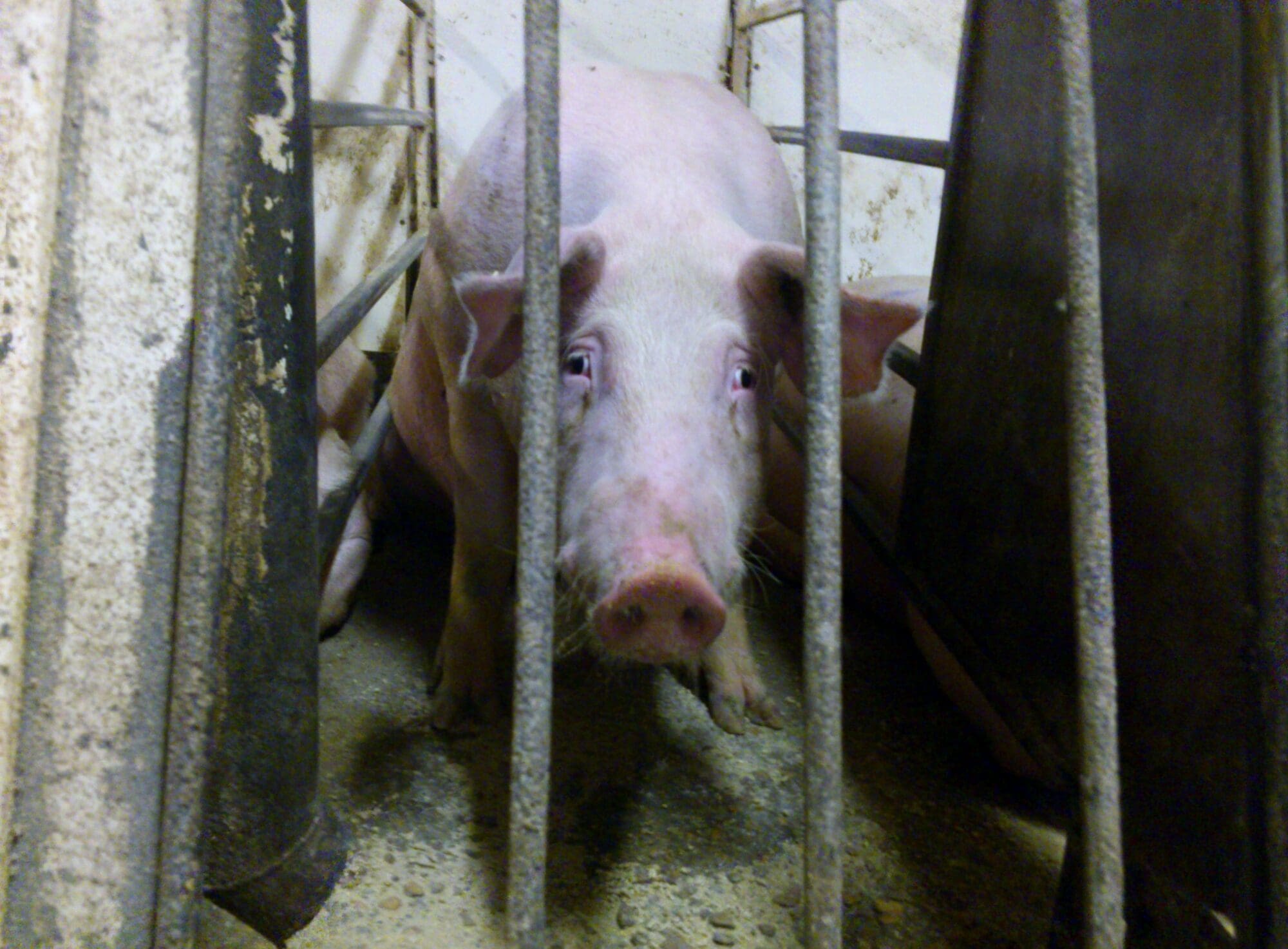Article originally published in the Vancouver Sun.
Once again, the veil has been lifted on a B.C. farm to expose sickening cruelty being inflicted on animals. And once again, animal agriculture representatives say it’s not the norm — it’s just a few bad apples.
But last week’s release of an undercover video taken by animal activists at an Abbotsford hog farm, that allegedly shows sick and dying pigs living in filthy conditions alongside dead and decomposing animals, graphically illustrates why the livestock industry cannot be trusted to care for animals humanely.
The farm is owned by a director of the B.C. Pork Producers Association, whose spokesman told media: “I think it’s important to know when people see this footage this isn’t all completely normal on most farms.” Yet, the ease with which undercover investigators find and reveal abuse suggests that animal cruelty in intensive farming is not the rare occurrence that operators claim.
In 2014, activists released video that exposed horrific cruelty inflicted on cows at Chilliwack Cattle Sales, Canada’s largest dairy farm. At the time, Jeff Kooyman, one of the owners of the farm, said he was “shocked” and claimed he had no idea his staff were abusing the cows. In 2016, Kooyman and five members of his family were charged with causing or permitting animals to be in distress.
In June 2017, video footage released by animal activists showed chickens at a Chilliwack poultry operation being mangled, stomped on and thrown against a wall. The Canadian Food Inspection Agency laid charges under federal regulations against Elite Farm Services and its president, Dwayne Dueck, for allegedly beating chickens and loading them in a way “likely to cause injury or undue suffering.” When the video first appeared in the media, Dueck said he was “sickened” by the footage.
In 2018, the B.C. SPCA announced it was again investigating Elite Farm Services in what it said was “another situation where chickens have allegedly suffered as a result of what appears to be a blatant disregard to adherence of the industry’s own agreed-upon standards of care…”
These undercover animal cruelty cases, and many others that have exposed similar abuse across Canada, show that industrial agriculture cannot provide humane conditions for animals. The system is designed to mass produce cheap meat, eggs and dairy, not to provide good lives for animals.
Working with large numbers of animals on an intensive farm must be desensitizing. Each animal, as science has shown, is sentient and has its own individual personality yet on the factory farm they are by definition a commodity. This contradiction cannot be squared. Cruelty occurs when there is no empathy and factory farm workers cannot empathize with animals as individuals. If they did, how could they keep on working?
Many Canadians do not realize that animal farmers in Canada largely police themselves. There are codes of practice for the care and handling of farm animals, the creation of which are largely industry-led, but there are no on-farm government inspections to ensure they are enforced.
For a growing number of people, the real answer is to turn away from animal-based food products. As more plant-based alternatives to animal products emerge, the easier it is to transition to a plant-based diet. In the short-term, even just reducing meat consumption sends a market signal to livestock producers that factory farming is becoming unacceptable, thus forcing reforms.
In the longer term, bolstered by the need to end the environmental damage and poor health outcomes of a food system based on animal consumption, the plant-based diet may finally bring an end to factory farming and all the animal suffering it causes.

